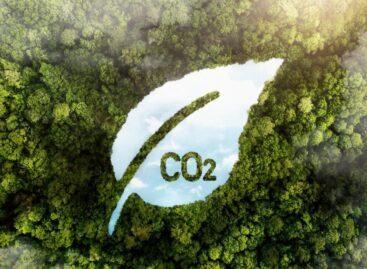Looking at the past decade, carbon dioxide intensity decreased the slowest globally last year
For more than 20 years, the G20 countries have not been able to achieve a carbon dioxide reduction rate higher than 11.5% per year, therefore a decarbonization of 20.4% worldwide, i.e. a reduction in emission intensity, would be necessary in order to reduce global warming by 1 can be limited to .5°C. According to the PwC Net Zero Economy Index survey, renewable energy capacity is not growing at a fast enough pace either. The increase in demand for energy threatens the results achieved with the spread of renewable energy sources, so there is a need for increased development in the field of improving energy efficiency and adjusting energy to supply.
 For the 16th time this year, PwC’s Net Zero Economy Index examined the carbon dioxide emission data associated with economic growth, comparing it with the indicators necessary to achieve the objectives of the Paris Agreement. The Index measures the extent to which economies are able to “decouple” economic development from the increase in carbon dioxide emissions associated with energy production.
For the 16th time this year, PwC’s Net Zero Economy Index examined the carbon dioxide emission data associated with economic growth, comparing it with the indicators necessary to achieve the objectives of the Paris Agreement. The Index measures the extent to which economies are able to “decouple” economic development from the increase in carbon dioxide emissions associated with energy production.
According to the analysis, an increasing effort, a decarbonization rate of 20.4% compared to last year’s 17.2%, would be necessary in order for global warming to exceed the pre-industrial level by no more than 1.5°C.
Are decarbonisation efforts futile?
In 2023, the carbon dioxide intensity decreased by only 1.02%, which is the smallest value since 2011. Since 2000, no G20 country has been able to show an annual decarbonization rate higher than 11.5%, the highest level (-11.08%) was reached by France in 2014. Exceeding 1.5°C is slowly becoming a reality, and limiting warming to 2°C – the minimum objective of the Paris Agreement – would also require serious steps, as it would require a 6.9% annual emission reduction.
“Today we clearly risk exceeding the 1.5°C threshold, which will have serious consequences. In fact, the gap between goals and actions is widening, and without global cooperation, the rate of warming cannot be kept within safe limits. In order to achieve the necessary changes, we must not only expand the areas of use of renewable energy, but also manage energy demand more efficiently, and increase the financial and technical support necessary for a fair transition.”
– emphasized Anita Sávoly-Hatta, PwC partner responsible for ESG reporting.
Related news
Green Cloud’s commercial director arrives from Auchan
Green Cloud, a leader in the market for sustainable corporate…
Read more >What makes us add the product to the cart – research
The latest joint research by PwC and Publicis Groupe Hungary…
Read more >The market is not the primary driver of green corporate decisions in Hungary
The sustainability strategies and investments of domestic companies will be…
Read more >Related news
Corporate leaders’ commitment to sustainability at record level
According to the latest data from the K&H Sustainability Index,…
Read more >FAO food price index rose slightly in June due to higher prices of meat, dairy products and vegetable oils
The Food and Agriculture Organization of the United Nations (FAO)…
Read more >What can cause the price of a wine to increase tenfold?
There are fewer of them worldwide than the number of…
Read more >






